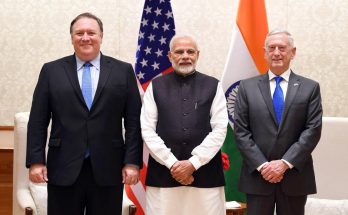
After 2+2 show, Trump tars India & China with subsidies brush
In US President Donald Trump’s lexicon, 2+2 does not exactly add up to 4, as long as trade deficit persists! Days after the 2+2 dialogue between the foreign and defence …
Read MoreGlobal Indian News

In US President Donald Trump’s lexicon, 2+2 does not exactly add up to 4, as long as trade deficit persists! Days after the 2+2 dialogue between the foreign and defence …
Read More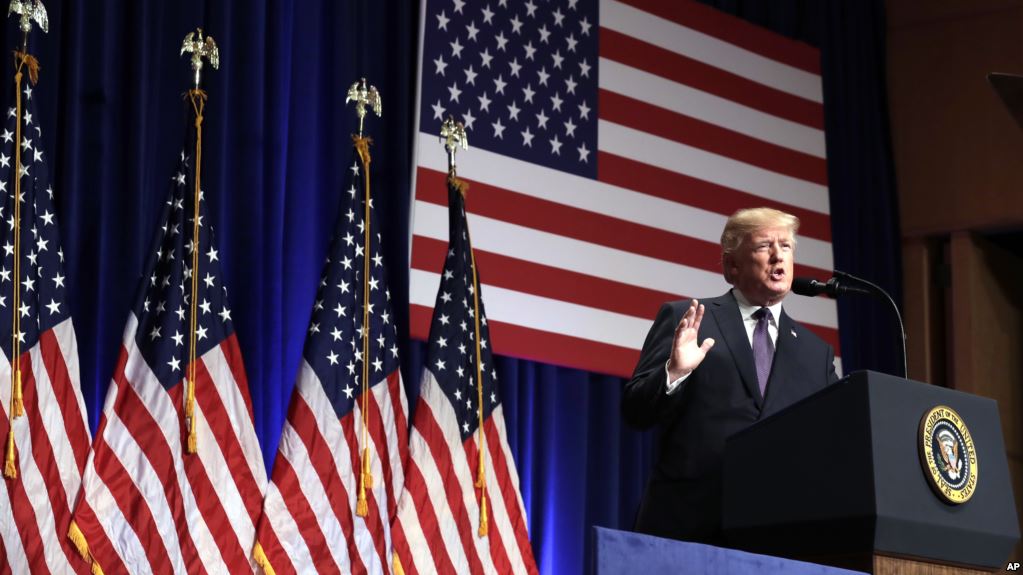
In US President Donald Trump’s newly-unveiled National Security Strategy (NSS), India is toasted as a leading global power, with Washington flaunting its love for New Delhi and deepening strategic and economic ties with this emerging power. Russia and China are painted as rivals and the US’ top national security threats, which threaten to “challenge American power, influence, and interests, attempting to erode American security and prosperity.”
If there is one country which has come out shining in Trump’s “America First” NSS, unveiled in Washington on December 18, it’s India, the world’s most populous democracy and the fastest growing major economy. Seeking to bolster India’s rise, the NSS also backs India’s concerns obliquely on the China-led One Belt One Road project and asks Pakistan to take “decisive action” against terror groups operating from its territory.
Clearly, there is a lot to rejoice for India, but the prospects of adversarial relations with Russia and China presage a conflicted international geopolitical landscape which New Delhi will have to tread cautiously.
Shaping a balanced regional order and curbing China’s assertiveness align with New Delhi’s larger strategic goals, but given its own delicate relationship with China and extensive economic ties New Delhi will have to do a delicate diplomatic juggling act to avoid the impression of joining the US-led China containment design, which has been reinforced by the launch of the Quadrilateral dialogue among leading maritime democracies of the region, including India, US, Japan and Australia.
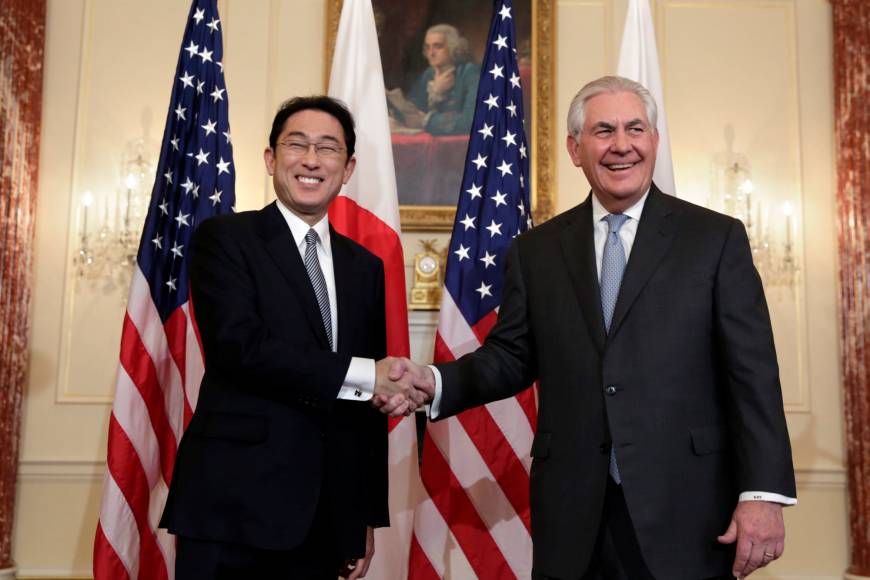
US Secretary of State Rex Tillerson reached Seoul on the second leg of a six-day sweep of Japan, South Korea and China, a nuclear hotspot gripped by high tensions following North Korea’s testing of missiles last week, on his first overseas visit since being appointed to the post.
As North Korea fired four missiles in quick succession, which splashed not far from the coast of Japan, the nuclear and military threat posed provoked the neighbouring countries to forge a plan on how best to confront a defiant Pyongyang and slow or halt its move to launch a nuclear strike.
North Korea’s military had launched an unprecedented 21 ballistic missiles in 2016 and set off two nuclear detonations. It has launched five missiles in the first 69 days of this year, making the region a potential nuclear flashpoint.
In both Tokyo and Seoul, the US top diplomat told the media that Washington is in search of a “new approach” for North Korea after what he described as two decades of failed efforts to denuclearize the country. In Tokyo on March 17, Mr Tillerson said two decades of diplomatic and other efforts, including a period when the US provided North Korea with $1.35 billion in assistance “to take a different pathway”, had come to nothing, an apparent dig at previous President Barrack Obama’s policy of “patience and engagement” with North Korea.
In China, Mr Tillerson is expected to convey to the Chinese leadership that the Donald Trump administration is keen on pursuing a constructive relationship with Beijing while remaining firm to ensure that China abides by international rules and that trade between the two countries is not eschewed in favour or disfavour of any side unfairly and conducted on a level playing field. He is also likely to sound out how China could give more opportunities for U.S. firms to export goods and services to that country.
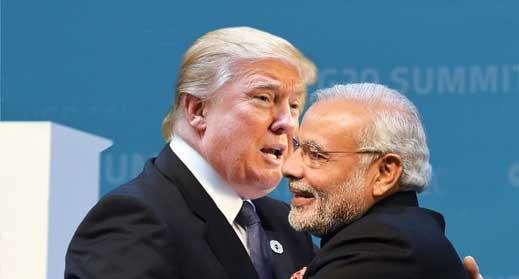
The spectacular headline-hogging victory of billionaire tycoon and reality TV star Donald Trump, who took charge as the 45th president of the US on January 20, has unsettled the global consensus about America’s leadership and position in a conflicted and mutating world order.
Nearly all parts of the world, impacted by the US’ policies directly or indirectly, are speculating feverishly about the ramifications of the Trump presidency. The dominant sentiments are that of anxiety, befuddlement, uncertainty and unpredictability. These disparate worries and apprehensions can be coalesced and crystallised in the Trump Anxiety Index (TIA), which will rise and decrease in proportion to the policy and postures his presidency will adopt towards major cross-cutting issues.
The questions are proliferating by the day, but the Trump anxiety is more pronounced in some countries and regions of the world. On a scale of 1 to 10 on Trump Anxiety Index, China, Mexico and Pakistan will score high, maybe 7-8. By contrast, India scores low, maybe 3-4.
Why India is not so much worried about the Trump presidency? The answer to this all-important question is not all that esoteric. While there is some speculation about a possible reset in India-US relations in some areas, the picture is largely positive and optimistic, and it won’t be an exaggeration to say that there will be more continuity than disruption and potential subversion.
Looking ahead, the picture for India-US relations is largely optimistic, albeit the road ahead is fraught with some challenges and imponderables. Both George Bush Junior and President Obama had raised the bar for what the latter has called “the defining partnership of the 21st century,” and it is now up to President Trump to seize the initiative and leave his indelible imprimatur on this important relationship. Trump’s dream of Making America Again should blend with continued support for India’s rise, the ongoing project of making India great again. The hesitations of history, as PM Modi famously said, are well behind us, and it’s time for the world’s largest democracies to compose a new symphony amid challenges, uncertainty and free-floating anxiety. Read more…
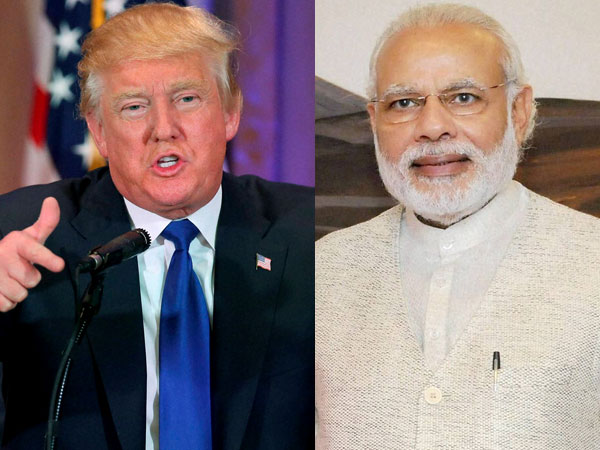
Barely a week before Donald Trump is sworn in as president of the US, there are reassuring signals that while the India-US relations will be scaled up, the incoming administration will be tough on China, creating a new balancing game in the crucial Asia-Pacific region.
Ahead of his Senate confirmation hearing, Gen (retd) James Mattis, President-elect Donald Trump’s nominee for Defence Secretary, has identified building stronger ties with India as of “utmost importance.” Gen. Mattis underlined that if confirmed, he would identify areas where India and the US could further bolster their defence ties. It’s a clear signal from the incoming administration that the transformation of the India-US relationship accomplished during the Obama administration, which culminated in the elevation of India as US’ Major Defence Partner, will not only continue apace, but will scale new frontiers in months to come.
Mattis’ remarks should allay apprehensions of those who felt that the Trump administration will withdraw from an activist role in security of the Asia-Pacific region, leaving the field wide open for China, the region’s powerhouse, to set the agenda. President-elect Trump has already rattled Beijing by his controversial telephone call to Taiwan’s President Tsai Ing-we, indicating that it won’t be business as usual with China unless the latter is more sensitive and accommodative of the US concerns. If the US were to revise its One China policy, the US-China relations are set to hurtle downhill.
What it all adds up to is that contrary to speculation in some sections, the Trump administration will broadly pursue a recalibrated balancing strategy in Asia-Pacific by continuing to bolster ties with India and Japan while relating to China in a tough no-nonsense manner. These remarks are sure to be resented by the powers-that-be in Beijing which has often accused Washington of following an insidious containment strategy, in league with New Delhi and Tokyo.

In a time of social media frenzy and popular zeal for immediate news, many comments about President-elect Donald Trump seem to focus on his team-building and policy formulation. Important as they are, the Chinese should not dance to Mr Trump’s tune but look for proactive shaping, creative initiatives and possible alternatives. Therefore, I would like to give the following five pieces of advice to President-elect Trump for maintaining peace and prosperity of the world in general and stable, win-win China-US relations in particular.
First of all, President-elect Trump should move along with instead of against the trends of our times. The re-configuration of powers between the United States and the other major players is one of most significant developments today. Second, President-elect Trump should truly understand his mandate and know his limits.
Third, President-elect Trump should learn to deal with intricate and complex global affairs. Fourth, President-elect Trump should have integrated thoughts on its strategy and policy towards China. Last but not least, President-elect Trump should differentiate geo-strategic commitments and economic engagements.
China believes that cooperation is the only correct choice for the China-US relations. With its usual thinking and practice, China exercises self-restraint and gives more time to President Trump to learn the importance of the China-US relations and practice accordingly. However, the internal and external developments will not wait too long. Therefore, President-elect Trump must truly realise the urgency of managing US-China relations in a constructive manner.